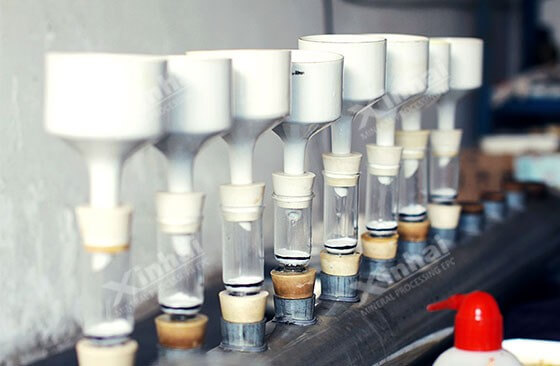

Warm Tip: If you want to know more details about equipment, solutions, etc, please click the button below for free consultation, or leave your requirements!
Phosphate ores are closely associated with gangue minerals and low-grade phosphate ore often contains high gangue minerals content. So flotation Processes is a common and more effective process for phosphate.
The common phosphate flotation process mainly includes: direct positive flotation, single reverse flotation, reverse-direct flotation, direct-reverse flotation, double reverse flotation and grading flotation.

Direct positive flotation is suitable for siliceous or calcium silicate phosphate ore. Its working principle is to inhibit siliceous and carbonate minerals and concentrate phosphate minerals into foam products. This process has simple flow, flotation reagents and equipment. But direct positive flotation cannot separate carbonate minerals, and foam is too sticky, which is not easy to convey and handle.
Single reverse flotation process is suitable for those compact massive or banded phosphate ores, as well as the carbonate-type phosphorous with low siliceous mineral content. Its working principle is to inhibit phosphate ore and concentrate gangue minerals into the foam products. Colloid phosphate and dolomite will be separate by this flotation process.
Direct-reverse flotation is usually used in calcium-silicate phosphate. Its working principle is to concentrate the phosphate ore into the foam products, enrich the gangue minerals of phosphate foams in the bubble, then float them.
Reverse-direct flotation process is generally used to deal with silicon-calcareous phosphate. Its working principle refers to keep the phosphate ore in underflow of pulp by reverse flotation, then concentrate the phosphorus ore of underflow by the positive flotation.
Double reverse flotation process is suitable for mixed phosphorite with low siliceous gangue and carbonate. Its working principle is to separate desilication and de-calcification repeatedly by the reverse flotation process.
Grading flotation process is suitable for colloidal. When deal with this kind of phosphate it needs to grade raw ore firstly, which maximize monomer dissociation. Then float phosphate.
The material composition of phosphate is particularly complicated. The different material composition of ore has different impregnation characteristics and mosaic characteristics, which determines that the ore has different flotation processes. Whether the selection of the flotation process is appropriate will affect the flotation effect. It is recommended that all mine owners formulate a scientific and reasonable flotation process based on the report to avoid unnecessary economic losses.
17 Factors Affecting Phosphate Froth Flotation
 0
0
 3120
3120
26 Common Phosphate Flotation Processes

 3504
3504
3Beneficiation of Phosphate Ore
 20
20
 3129
3129
